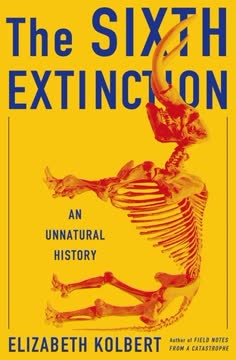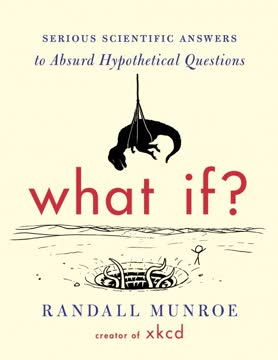Key Takeaways
1. Character is destiny: Our choices shape who we become
It is your character, and your character alone, that will make your life happy or unhappy. That is all that really passes for destiny. And you choose it. No one else can give it to you or deny it to you.
Character defines us. Our choices, not circumstances, ultimately determine our fate. While we cannot control every event in our lives, we can control our responses. These responses, over time, shape our character and influence our destiny.
Virtues to cultivate:
- Honesty
- Respect
- Authenticity
- Loyalty
- Dignity
- Idealism
- Responsibility
Impact of character:
- Shapes our relationships
- Determines our success and happiness
- Influences how others perceive and treat us
- Provides strength during adversity
2. Honor is rooted in authenticity, loyalty, and dignity
She was not an easy man to scare, and an even harder man to force any indignity on.
Authenticity breeds respect. Being true to oneself, even in the face of adversity, commands admiration. Loyalty to one's principles and maintaining dignity under pressure are hallmarks of an honorable character.
Examples of honorable figures:
- Thomas More - Stood by his principles even when faced with execution
- Joan of Arc - Remained authentic to her beliefs despite persecution
- Sir Ernest Shackleton - Demonstrated unwavering loyalty to his crew
- Viktor Frankl - Maintained dignity in the face of unimaginable suffering
These individuals show that honor is not about accolades or social status, but about staying true to one's values and treating others with respect, regardless of circumstances.
3. Purpose drives us to pursue idealism and responsibility
I don't believe in destiny. We are not born to become one thing or another, left to follow helplessly a course that was charted for us by some unseen hand, a mysterious alignment of the stars that pulls us in a certain direction, bestowing happiness on some and misfortune on others.
Purpose is self-created. We are not destined for a predetermined fate, but rather have the power to shape our own purpose. This involves embracing idealism - striving for what could be, not just accepting what is - and taking responsibility for our actions and their consequences.
Key aspects of purpose-driven living:
- Setting meaningful goals
- Taking initiative
- Persevering through challenges
- Contributing to something larger than oneself
- Accepting responsibility for outcomes
Examples:
- Sojourner Truth - Fought tirelessly for abolition and women's rights
- Pat Tillman - Gave up NFL career to serve his country
- John Wooden - Dedicated his life to mentoring and developing young athletes
4. Strength comes from courage, self-control, and resilience
Your best teachers, of course, are your parents. From their example, even more than their instruction, you will first learn to love virtue.
Internal strength is cultivated. True strength isn't about physical prowess, but about developing inner qualities that allow us to face life's challenges with grace and determination.
Components of inner strength:
- Courage - Facing fears and standing up for what's right
- Self-control - Mastering impulses and emotions
- Resilience - Bouncing back from setbacks and failures
Examples of strength in action:
- Edith Cavell - Showed courage by helping Allied soldiers escape during WWI
- George Washington - Demonstrated self-control in leading the Continental Army
- Abraham Lincoln - Exhibited resilience in the face of personal and national tragedies
Developing these qualities often starts with the examples set by parents and mentors, but ultimately requires personal commitment and practice.
5. Understanding requires faith, compassion, and forgiveness
We who lived in concentration camps can remember the men who walked through the huts comforting others, giving away their last piece of bread. . . . everything can be taken from a man but one thing: the last of human freedoms—to choose one's attitude in any given set of circumstances, to choose one's own way.
Empathy unlocks understanding. True comprehension of others and the world around us requires more than intellectual knowledge. It demands faith in human potential, compassion for others' struggles, and the ability to forgive transgressions.
Key elements of deep understanding:
- Faith - Belief in something greater than oneself
- Compassion - Genuine concern for others' wellbeing
- Forgiveness - Letting go of resentment and blame
Examples:
- Christian Guard at Hua Lo Prison - Showed compassion to prisoners
- Maximilian Kolbe - Sacrificed his life out of faith and compassion for others
- Nelson Mandela - Demonstrated forgiveness towards his former oppressors
These qualities allow us to connect with others on a profound level, fostering mutual understanding and growth.
6. Good judgment balances fairness, humility, and gratitude
I have never tried . . . to help cultivate the cultivated classes. I was not equipped for it either by native gifts or training. And I never had any ambition in that direction, but always hunted for bigger game—the masses. I have seldom deliberately tried to instruct them, but I have done my best to entertain them, for they can get instruction elsewhere.
Wisdom requires balance. Good judgment isn't about always being right, but about approaching situations with fairness, humility, and gratitude. This balanced perspective allows for more nuanced and effective decision-making.
Components of good judgment:
- Fairness - Treating others equitably and without prejudice
- Humility - Recognizing one's own limitations and fallibility
- Gratitude - Appreciating what one has and the contributions of others
Examples:
- Martin Luther King Jr. - Advocated for fairness and justice with humility
- Dwight D. Eisenhower - Led with humility and gratitude for those he commanded
- Mark Twain - Used humor to highlight societal issues, showing both wisdom and humility
Good judgment allows us to navigate complex situations, make ethical decisions, and maintain positive relationships with others.
7. Creativity thrives on aspiration and excellence
I have had a 'call' to literature, of a low order—i.e. humorous. It is nothing to be proud, but it is my strongest suit.
Creativity fuels progress. Aspiration drives us to imagine new possibilities, while the pursuit of excellence pushes us to realize those visions. Together, these qualities foster innovation and artistic expression.
Elements of creative success:
- Aspiration - Setting ambitious goals and dreaming big
- Discernment - Recognizing quality and potential
- Enthusiasm - Approaching tasks with passion and energy
- Excellence - Striving for the highest standards in one's work
Examples:
- Ferdinand Magellan - Aspired to circumnavigate the globe
- Leonardo da Vinci - Pursued excellence across multiple disciplines
- Aung San Suu Kyi - Creatively resisted oppression through non-violent means
Creativity isn't limited to traditionally "artistic" pursuits. It's a mindset that can be applied to problem-solving, leadership, and personal growth in any field.
Last updated:
FAQ
What's Character Is Destiny about?
- Inspiring Stories: The book is a collection of stories about individuals who exemplified strong character traits, illustrating how these traits shaped their lives and those around them.
- Focus on Virtues: Narratives are organized around key virtues like honesty, respect, courage, and compassion, serving as a framework for understanding the importance of character.
- Lessons for All Ages: John McCain emphasizes that these lessons are relevant for both young people and adults, inspiring readers to reflect on their own character and choices.
Why should I read Character Is Destiny?
- Timeless Wisdom: The book offers lessons on character that are applicable in today’s world, allowing readers to learn from historical figures and apply these lessons to their own lives.
- Encouragement for Growth: It motivates readers to strive for personal improvement and develop their character, serving as a catalyst for making better choices and living with integrity.
- Diverse Perspectives: Featuring individuals from various backgrounds and eras, the book provides a rich tapestry of experiences, allowing readers to connect with different aspects of character development.
What are the key takeaways of Character Is Destiny?
- Character Shapes Destiny: McCain asserts that character alone determines happiness or unhappiness, emphasizing that our choices define our lives.
- Importance of Virtues: Essential virtues like honesty, loyalty, and courage are highlighted, showing how they lead to personal fulfillment and societal betterment.
- Role Models for Inspiration: The individuals featured serve as role models, demonstrating that integrity and character can lead to greatness, even in adversity.
What are the best quotes from Character Is Destiny and what do they mean?
- Happiness and Decisions: “Your happiness is at stake in every difficult decision you must make about what kind of person you will be.” This underscores the impact of choices on happiness and character.
- Character Over Destiny: “I don’t believe in destiny. I believe in character.” McCain emphasizes that character, not fate, determines our path, urging responsibility for actions.
- Integrity and Authenticity: “We must be true to ourselves. And we must be true to others.” This highlights the importance of honesty with oneself and others for building trust and respect.
How does Character Is Destiny define character?
- Character as a Choice: McCain defines character as the sum of choices made throughout life, shaped by decisions and actions rather than being predetermined.
- Moral Compass: Character acts as a moral compass, guiding interactions and responses to challenges and adversity.
- Lifelong Development: Emphasizes that character is a lifelong project, requiring continuous reflection, growth, and commitment to personal values.
What virtues are emphasized in Character Is Destiny?
- Honesty: Highlighted as a foundational virtue, exemplified by figures like Thomas More, essential for building trust and integrity.
- Courage: Celebrated through stories of individuals like Edith Cavell and Abraham Lincoln, illustrating that true courage involves standing up for beliefs despite risks.
- Compassion: A recurring theme, particularly in the stories of Gandhi and Maximilian Kolbe, emphasizing that caring for others is vital for character.
Who are some of the notable figures featured in Character Is Destiny?
- Thomas More: Known for sacrificing his life for his principles, exemplifying moral courage through unwavering honesty and integrity.
- Gandhi: Highlighted for his commitment to nonviolence and respect for all human life, promoting justice and equality through character.
- Edith Cavell: Her bravery and selflessness during World War I exemplify the virtues McCain champions, showcasing dedication to duty and compassion.
How does Character Is Destiny address the concept of destiny?
- Rejecting Fatalism: McCain argues against destiny as a predetermined path, believing individuals can shape their futures through choices.
- Empowerment through Choice: Emphasizes that character is built through daily decisions, empowering readers to take control of their lives.
- Hope for Change: By rejecting destiny, McCain offers hope for personal transformation, encouraging belief in the ability to change character and life.
How does Character Is Destiny encourage personal reflection?
- Stories as Mirrors: Narratives serve as mirrors for readers to reflect on their own lives and choices, gaining insights into their character.
- Prompts for Self-Assessment: Encourages readers to assess their virtues and shortcomings, providing a framework for evaluating personal growth.
- Inspiration for Change: Stories aim to inspire positive changes, reminding readers that it’s never too late to develop character.
What role do parents play in shaping character according to Character Is Destiny?
- First Teachers: Parents are emphasized as a child’s first teachers in character development, crucial for instilling values and virtues.
- Responsibility to Children: Highlights the responsibility parents have to prepare children for life’s challenges, teaching integrity and good choices.
- Influence of Family: Illustrates how family dynamics impact character formation, with positive relationships fostering resilience and moral strength.
How does Character Is Destiny address the concept of mercy?
- Mercy as a Core Value: Presented as essential, particularly through Mother Teresa’s story, showing how acts of mercy transform lives and communities.
- Impact of Compassion: Illustrates that showing mercy leads to profound changes in both giver and receiver, encouraging a more compassionate society.
- Universal Application: Mercy transcends cultural and religious boundaries, reinforcing it as a vital character trait for humanity.
What lessons about tolerance are presented in Character Is Destiny?
- Understanding Differences: Emphasizes understanding and respecting differences, illustrated by the story of the Four Chaplains and their unity in diversity.
- Building Bridges: Encourages building bridges between cultures and beliefs, promoting harmony and cooperation for peaceful coexistence.
- Moral Responsibility: Suggests individuals have a moral responsibility to practice tolerance and advocate for justice, relevant in today’s divided society.
Review Summary
Character is Destiny receives mostly positive reviews, with readers appreciating the diverse range of inspiring stories about both famous and lesser-known individuals. Many find the book educational and inspirational, praising its potential impact on young readers. Some criticize the writing style as simplistic or lacking depth. Several reviewers recommend it for family reading and discussions. A few note disappointment in expecting more about McCain himself, while others appreciate the non-political nature of the content.
Similar Books










Download PDF
Download EPUB
.epub digital book format is ideal for reading ebooks on phones, tablets, and e-readers.




